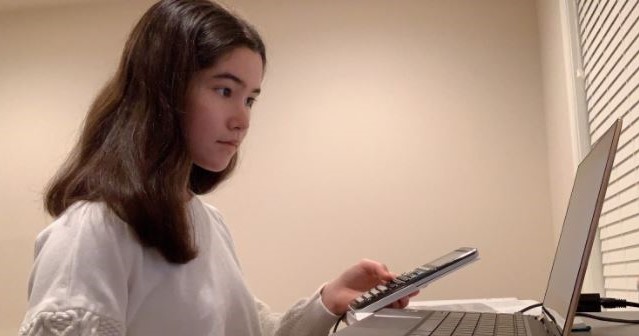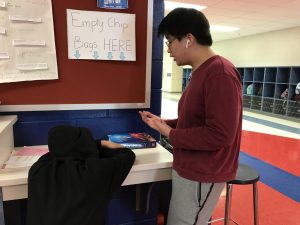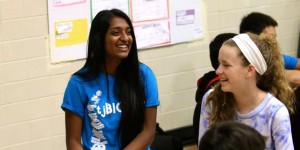A helping hand
Siblings and only children seek different academic guidance.
Freshman Serenna Semonsen, an only child, studies at home. She sees benefits to studying without siblings. “I don’t have as many distractions and I can just be alone in a quiet room and do my assignments,” Semonsen said.
December 1, 2020
High school is a chaotic mass of students navigating their way through the hallways of extracurriculars, socialization, and schoolwork. Within this jumble of disarray are guiding hands who help students maneuver their way across halls. When problems with schoolwork arise, everyone has their own way of solving them.
Senior Brianna Ta, an older sibling, utilizes friends and teachers as sources of help.
“I [go] to either my friends or my teacher for an extra study hall to ask questions. I mostly look for answers online,” Ta said.
In addition to asking friends and teachers, freshman Jessica Chen also uses advice from her older sister.
“I receive some general tips from [my sister] Angela because she’s older and goes to the same high school, so she’s experienced these freshmen problems too,” Chen said. “I usually ask her for tips about procrastination or doing your homework and strategies like that.”
Freshman Serenna Semonsen, an only child, contemplates how her learning experience would differ if she had a sibling.
“If I had an older sibling he or she could be a role model for me, I could learn from their experiences and they could give me some advice. If I had a younger sibling, he or she might be a bit distracting or disruptive,” Semonsen said.
Meanwhile, putting herself in the shoes of a sibling, Semonsen believes her expectations would be higher than her current ones seeing as she’d have someone to encourage or compare herself to.
“If I had an older sibling, I would try and be at least as good as them or maybe even better. If I had a younger sibling, my expectations would be relatively high because I’d want to be a role model for them so they’d have someone to compare themselves to. They might end up better off when they get to my age because right now I don’t have much to compare myself to,” Semonsen said.
Chen’s older sister’s optimistic attitude in school keeps Chen’s high school expectations positive.
“My sister is very happy-go-lucky, so my expectations have gotten a lot more positive about high school since she probably didn’t always have an A in every subject,” Chen said.
Additionally, Ta’s experience with her sibling helped make her realize that she can’t excel in everything.
“I can’t be good at everything and everyone has their strengths and weaknesses. While my brother is more athletic and creative, my strengths are in academics and attention to detail,” Ta said.
Older siblings are a middle ground between only children and younger siblings. They go through many first experiences without a guiding hand, much like an only child. However, they also have a younger sibling in their life that they guide and draw inspiration from.
“He [her younger brother] inspires me to be more creative and risky because I’m kind of a risk averse person,” Ta said, “but he’s the more daring sibling, and he convinces me to do things I wouldn’t normally try.”









